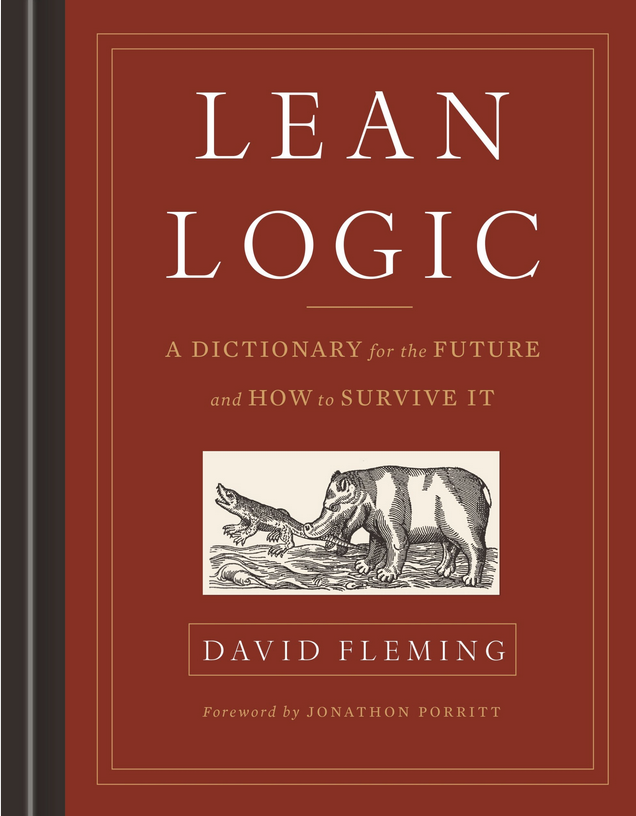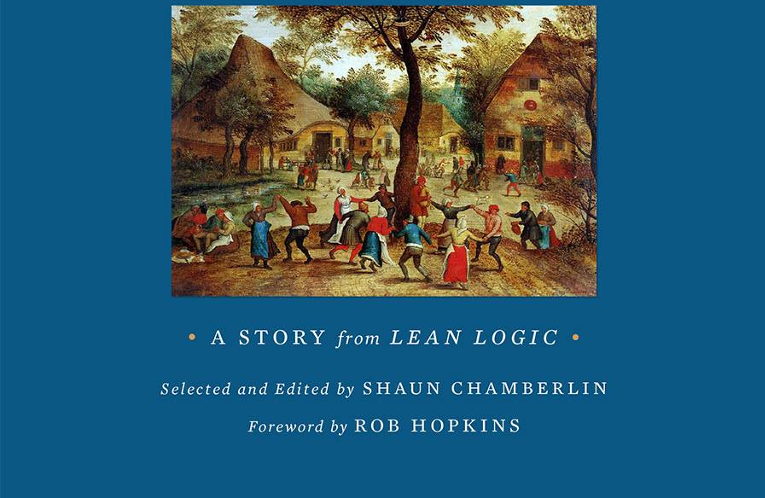Shaun Chamberlin, a British author and activist, has long been involved with the Transition movement; with climate change activism; and with a titanic effort to popularize the work of his former mentor, David Fleming. On my latest episode of Frontiers of Commoning, Episode #20, I speak with Chamberlin about these issues as well as the fragility of capitalism and our post-capitalist future.
Chamberlin is arguably the leading authority on David Fleming’s work. Fleming was a British polymath, political economist, and cultural historian involved with the Green Party, Transition movement, and climate activism, who unexpectedly died in 2010.
He left behind an unpublished manuscript that he had been working on for 20 years, which few people had read. It fell to Shaun Chamberlin, Fleming’s long-time colleague, to turn the manuscript into Lean Logic: A Dictionary for the Future and How to Survive It. The book was published in 2016 and promptly showered with awards and acclaim.
Lean Logic consists of some 600 pages of “dictionary entries,” or mini-essays, on such topics as “Climate Change,” “Reciprocity and Community,” “Debt,” and “Systems Thinking” as well as “Religion,” “Death,” “Presence,” and “Play.”
Some entries are several pages; others are just a paragraph or two. Readers can pore through the entries in any sequence they find interesting, but in whatever order they are read, taken together they offer a brilliant perspective on the problems of contemporary capitalism, the vulnerabilities facing human civilization, and how a post-capitalist world will likely evolve. Especially intriguing are Fleming’s speculations into how cooperative culture will surge as modern capitalist structures and markets fall apart.
The publication of Lean Logic spurred a wide public interest in Fleming’s ideas, perhaps because he addresses topics that are very much on people’s minds, but not often approached with frank realism and subtlety.
The book’s success was helped along by a shorter companion volume that Chamberlin prepared, Surviving the Future: Culture, Carnival, and Capital in the Aftermath of the Market Economy. This book is a more conventionally structured book of essays that distills the best of Lean Logic but edits the text into a “linear read,” meant to be read straight through, from front-to-back.
The entry on “Death” gives a sense of how Fleming’s method and depth.
“Death. The means by which an ‘ecosystem keeps itself alive, selects its fittest, controls its scale, gives peace to the tormented, enables young life, and accumulates a grammar of inherited meaning as generations change places….The large-scale system, relying on its size and technology, and making an enemy of death which should be its friend, joins a battle which it cannot win.”
 An entry on “Carnival” explains how “the making and sustaining of community requires deep presence and empowerment, with three key properties” – a “radical break” from the everyday; the elevation of the “animal spirit at the heart of the tamed, domesticated citizen”; and a “sacrifice-and-succession” process to affirm the ability of a community to survive and even be immortal, despite the death of community members.
An entry on “Carnival” explains how “the making and sustaining of community requires deep presence and empowerment, with three key properties” – a “radical break” from the everyday; the elevation of the “animal spirit at the heart of the tamed, domesticated citizen”; and a “sacrifice-and-succession” process to affirm the ability of a community to survive and even be immortal, despite the death of community members.
In other words, Lean Logic offers a lot to reflect on. If you’d like to dip into David Fleming’s world and check out his sensibilities, visit the Lean Logic website at https://leanlogic.online.online.
Over the past decade, Shaun Chamberlin, while promoting Fleming’s writings, has pursued his own set of system-change initiatives. He leads a course, “Surviving the Future,” through Sterling College in Vermont. And with a friend, Mark Boyle, he recently launched “The Happy Pig,” a “free pub, bunkhouse and community space” where people can connect and enjoy each other’s company. Chamberlin shares his research and writing at his website Dark Optimism.
My podcast interview with Shaun can be found here.






